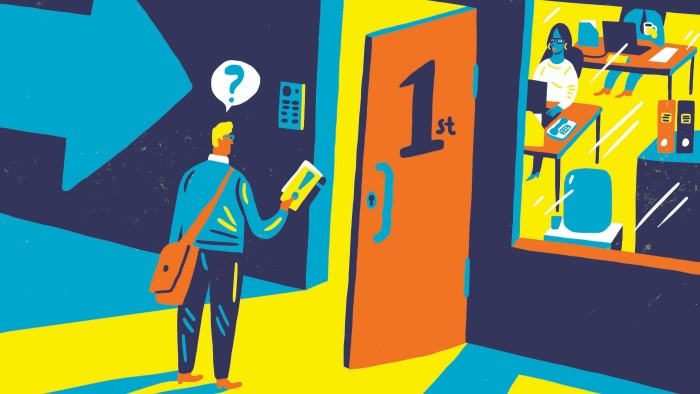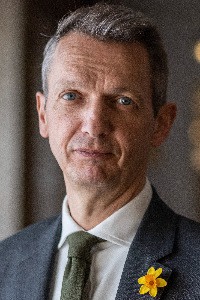My first job: what I wish I had known


Roula Khalaf, Editor of the FT, selects her favourite stories in this weekly newsletter.
Starting your first ever job is a big deal. It’s normal to have questions — lots of questions. What should you wear? Should you arrive early and, if so, how early? Should you ask for help if you don’t know how to do something, or try to figure it out on your own?
The FT asked a selection of people — some fairly young, others at the top of their careers — what they wish they had known when they started their first job.
They came up with all sorts of advice, from how to find mentors to what not to do in the lift.
Khalida Abdulrahim
Product strategy lead, Google

I work in product strategy at Google, advising leadership and product teams on areas of opportunity for the company. The lessons from the early days of my career continue to guide how I work today.
My first job was an unpaid summer internship at 17 working for a broadcaster in Nigeria. I later joined a graduate scheme in London in my early 20s. Here’s what I learnt in those early years of working.
First, be a sponge. Your foremost objective should be to learn as much as you can. Don’t be afraid to ask questions — curiosity will enable you to unlock new information and accelerate your learning. A helpful piece of feedback I received early in my career was to augment my curiosity with conjecture. That is, to think through potential solutions and have a working theory of what the answer might be, before seeking validation from more experienced colleagues.
This approach will force you to play an active role in your own learning and build your problem-solving muscle. Instead of only asking open-ended questions, I would attempt to add in my ideas or hypotheses, and ask for feedback on them.
Rephrasing from “what should we do?” to “I think we should do XYZ for the following reasons, but I would appreciate hearing your suggestions”. Or, from “what does this mean?” to “here’s what I found on this — does it make sense?”
This allows you to share your ideas, invites your colleagues to brainstorm with you, and demonstrates that you are a contributor to the team.
World of Work: free online event for students

Join us on Monday 27 March at 2pm — 3.30pm BST for a digital event hosted by FT Schools, offering more practical advice on skill building and career planning, and live Q&A. Sessions will be available to watch on-demand as well.
Register your free place here
Second, build your community and network. Throughout my career, I have witnessed the power of relationships in shaping how we experience the workplace. The corporate world can be intimidating for new joiners, especially young people, and more so for those from under-represented backgrounds. Find your community within your company, industry and beyond. You can do this via affinity groups, such as women’s networks. Don’t be confined to the walls of your company — reach out through industry groups to grow your network.
In the first few years of my career, I joined a public speaking club for people wanting to improve their communication skills; it exposed me to a diverse network of people outside of my company and industry. Seek mentors to guide you. Many corporations have formal mentorship programmes but, if not, find people who inspire you and ask them to mentor you.
Relationships I have built over the years have brought me new opportunities, helped me to grow professionally, or simply given me a safe space to connect with others. Just remember to be genuine when growing your network. Relationships, including those in the professional world, shouldn’t be purely transactional.
Andy Haldane
Chief executive of the Royal Society of Arts and former chief economist at the Bank of England

I landed at the Bank of England from a small, working-class town in the north of England. The experience was, I suspect, similar to that of landing from Mars. Here are my top tips for starting a job.
First, these days people will urge you to “bring your whole self to work”. Don’t remotely ever attempt this, especially in your first few weeks. It is better if work doesn’t know your whole self.
Second, don’t speak too loudly in the lifts. This instantly marks you out as both new and full of yourself. No one really likes youthful enthusiasm — especially at full volume in confined spaces.
Thirdly, don’t expect any of your prior experience or research to be of any interest or value to anyone. It almost certainly isn’t. I thought my university dissertation was the dog’s bollocks but it turns out it was only the second of these.
Pilita Clark
Columnist, Financial Times

I wish I had understood that, in your first job, you have a huge amount of freedom to ask about anything and everything. No one expects you to know much and most people are happy to help you learn more.
There should be no such thing as a dumb question but, the truth is, it can feel awkward and risky. That feeling tends to grow more intense the older you get, so take advantage of the brilliance of inexperience while you can.
Also, always be on time and always say thank you. It’s amazing how many people fail to do either.
Abi Adams-Prassl
Economics professor, University of Oxford

My first job was working in a horseriding stables in the evenings and weekends when I was in sixth form. Even though this is, in some senses, a world away from what I do now as an academic economist, there are some things I learnt that have stayed with me. And some things I wish I’d known when I started that job — or at least had learnt more quickly.
First, not everyone will think the same in any workplace. Think from the other person’s point of view when having a difference of opinion. Ask yourself: why do they think like that? You will probably learn something by doing so (unless you think the other person is dishonest or selfish).
Second, find your own way of getting to calm. Customers and horses could be moody and irritable. I could be moody and irritable. Meeting frustration with frustration rarely leads to a good outcome. I had to learn to let go of bad emotions and channel them into a calm but assertive response, to maintain a professional image in front of paying customers or to deal with troubled horses.
Finally, there are good and bad bits to every job. Reflect and write down the bits of the job you enjoy, and the bits you don’t. And do it regularly. You will not be in your first job forever but it will teach you something about where you want to go next. I learnt I liked dealing with people more than dealing with horses, and that having opportunities to be creative about doing things differently should be a key part of my next job.
Stephen Bush
Columnist, Financial Times

The main thing I learnt in my first job is the old advice that it is better to ask too many questions on your first day than to have to answer them on your third.
No one will remember you asking too many questions about the right way to tidy away the equipment or to stop the coffee machine from exploding.
Everyone will remember the person who blew up the coffee machine.

Comments